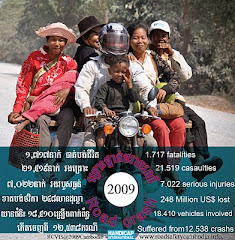Drivers, pedestrians, cyclists and motorcyclists are advised to:
• Leave early to avoid being marooned on flooded roads and always ensure you have enough fuel for your car.
• Monitor radio weather broadcasts while travelling.
• Try to avoid crossing a road covered in water. Wait until the water level drops or use an alternative route.
• If the road ahead is flooded choose another route, do not attempt to drive over it. Flooded roads that appear shallow could be deeper than you think. It is easy to underestimate the power of fast moving water.
• You don’t know what dangers are submerged in the water, which could cause you to stall or damage your vehicle.
• Watch out for washed out roads, earth slides, broken water or sewer mains, loose or downed electrical wires, and fallen or falling objects.
• Be aware where rivers or streams may suddenly rise and flood, for example highway dips, bridge, and low areas.
• If a road is flooded as a result of a river bursting its banks beware the current could be strong enough to sweep your vehicle away. Low floored vehicles (for example Camper Vans are particularly vulnerable to cross currents. If in doubt, take a different route.
• When entering water, go in slowly and keep a steady even throttle.
• Remember the air intakes of your vehicle are quite low and any water taken in will not only cause you to stall but will ruin your engine.
• Do not create a bow wave which could cut the engine.
• On narrow roads only one car at a time should go through the flooded area so as to avoid one flooding the other.
• Check your brakes without causing danger to following traffic. After going through deep water, drive slowly with your foot on the brake pedal for a short distance - this helps to dry the brakes.
• Sometimes roads can be closed due to their fragile state after wet weather or because they are blocked by flooding. Road users should always follow recommended routes and obey signs
closing roads to traffic for your own safety.
• If you are inside a vehicle and water is rising rapidly around you, abandon the vehicle immediately.
• If you have to leave your vehicle, be wary of strong currents and debris.
• After flooding the area of the flooded road can be very slippery due to residue.
Parsiana
-
← Previous revision Revision as of 17:37, 8 September 2025
Line 20: Line 20:
}}
}}
'''''Parsiana''''' is a semi-monthly magazine written in English an...
2 hours ago

No comments:
Post a Comment